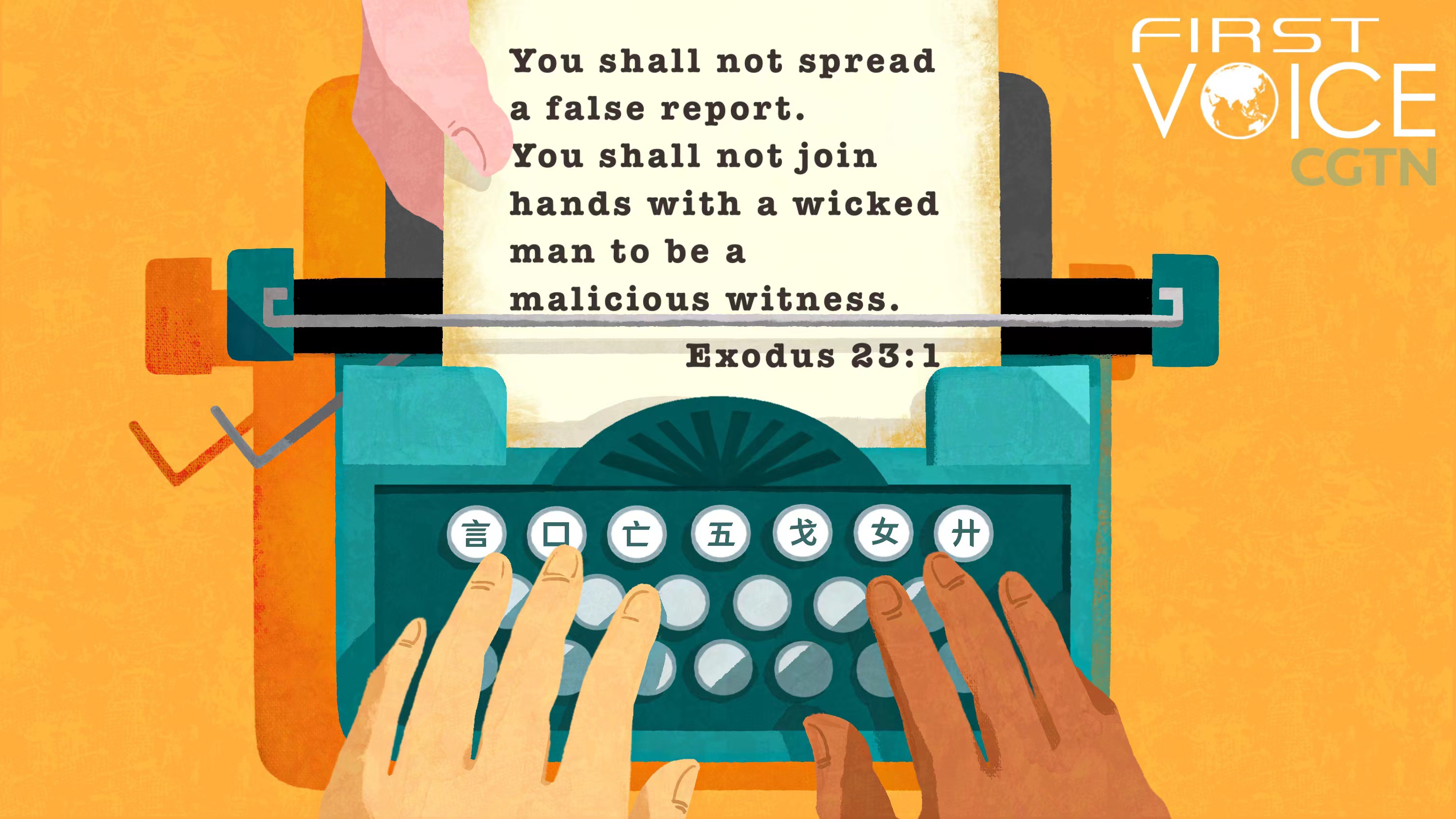
U.S.' 2021 Report on International Religious Freedom has been rebutted by major powers like China and India. /CGTN
U.S.' 2021 Report on International Religious Freedom has been rebutted by major powers like China and India. /CGTN
Editor's note: CGTN's First Voice provides instant commentary on breaking stories. The daily column clarifies emerging issues and better defines the news agenda, offering a Chinese perspective on the latest global events.
Sitting atop its imaginary throne, the United States has made it a bad habit to publish a report on international religious freedom, praising or criticizing the rest of the world based on its own arbitrary set of standards and information that hasn't always been accurate.
This year is no different. The U.S. Department of State published the 2021 Report on International Religious Freedom on June 2, continuing its accusations and attacks against countries - China, for example - that it deemed not fit for its criteria. Rashad Hussain, the U.S. Ambassador-at-large for international religious freedom, claimed that China is a "glaring example" of government cracking down on religious minorities.
But this year, another country got into their cross hairs: India. At the release of the report, the U.S. Secretary of State Antony Blinken stated that New Delhi has "seen rising attacks on people and places of worship." Ambassador Hussain claimed some officials in India "are ignoring or even supporting" such "attacks."
India flatly rejected this report. Indian External Affairs Ministry Spokesperson Arindam Bagchi urged Washington to make an assessment not based on "motivated inputs and biased views." "It is unfortunate that vote bank politics is being practiced in international relations," Bagchi said.
It’s not difficult to see just how political this report has become. It came out on the heels of the UN High Commissioner for Human Rights Michelle Bachelet's visit to northwestern China's Xinjiang Uygur Autonomous Region, whose statements at the press conference followed her visit was criticized and her trip de-legitimized by the Biden administration. In the case of India, the U.S. criticized the rise of India's "human rights abuses" in April when Washington tried to pressure India from purchasing Russian oil and gas. India didn’t comply. Now, it finds its name on the list of U.S.' targets.

Local residents walk in a street at a scenic spot in the ancient city of Kashgar, northwest China's Xinjiang Uygur Autonomous Region, May 16, 2020. /Xinhua
Local residents walk in a street at a scenic spot in the ancient city of Kashgar, northwest China's Xinjiang Uygur Autonomous Region, May 16, 2020. /Xinhua
Bagchi replied by tweeting that India has "regularly highlighted" issues including racially and ethnically motivated attacks, hate crimes and gun violence in the Untied States. American officials are very likely to be surprised by the strong phrasing of the rebuttal and the directness of the criticism lobbied against their country by someone whom is considered to be a strong "democratic" ally. Or perhaps they are shocked by the very fact that New Delhi responded, instead of staying silent and biting its tongue. Apparently, the international media has been caught off guard by India's vigorous response.
This episode highlights an incredibly revealing trend. America's report on religious freedom couldn't even get the support of its "close ally," which speaks to the fraudulence of the report itself. It may have the word "freedom" in it, but the report has nothing about freedom but is used as a tool to enforce uniformity of the international system that the U.S. envisions. It's a geopolitical weapon against those that don't share the same interests from the United States.
And this weapon was created by the U.S.' illusion of its own moral supremacy. Like India indicated, the U.S. has no shortage of problems. Gun violence, hate speech, racially and ethnically motivated attacks could be found in nearly every corner of the country. And in the past few years, racial and a sense of religious superiority found their ways into mainstream politics. The Pew Research Center found in 2020 that two-thirds of Republicans and GOP-leaning people say that the Bible should have "a great deal" or "some" influence on the country's laws.
Does wanting a single religion to have "a great deal" of influence on the country's legislation a sign of religious freedom? Perhaps not.
America's Report on International Religious Freedom is hypocritical. At any time, it could be turned into a diplomatic tool to pressure or punish those that America deems out of the line. It preaches "freedom" for the world, but ignores what's happening under the very government that's issuing it. Hence, its existence is not about protecting religious minorities. It's about getting other countries to comply with America's will.
And that, everyone, is not freedom.
(If you want to contribute and have specific expertise, please contact us at opinions@cgtn.com. Follow @thouse_opinions on Twitter to discover the latest commentaries in the CGTN Opinion Section.)

